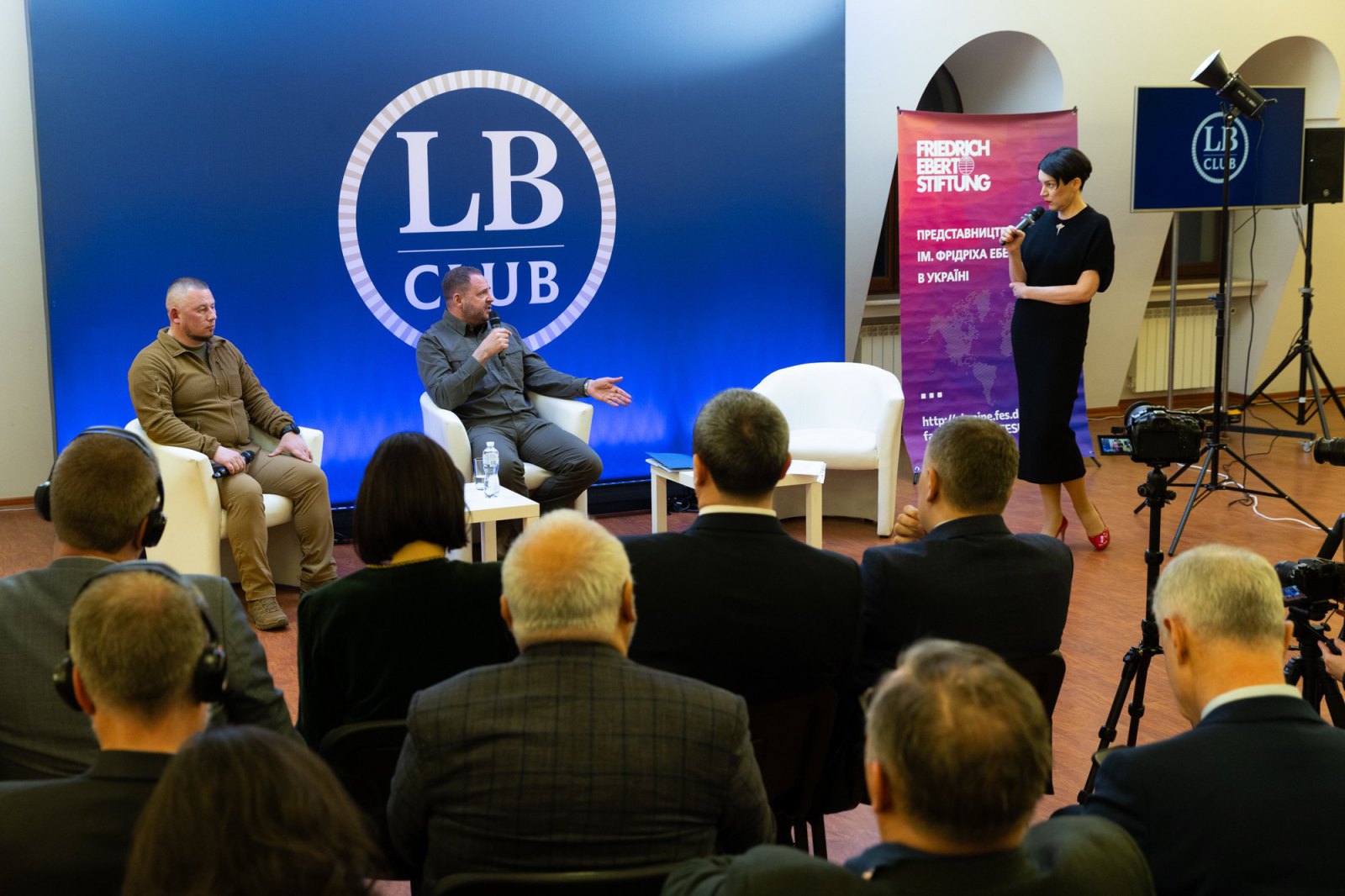"There were no talks about territorial concessions with our delegation either in Jeddah or later, two weeks later, in Riyadh"
Andriy Yermak, opening remarks: I would like us to speak today not with a pessimistic attitude, because a person lives and fights when he or she believes. And our faith, our strength, the strength of our nation has been unshakable for more than three years since the beginning of the full-scale invasion, when we were given three days, then a month. All this time, Ukrainians have been demonstrating that we are fighting for our independence and freedom for a reason. Even when everything in the world is changing rapidly and many new challenges are emerging, we find a way out every time, we find an opportunity to defend our interests.
This is what all the meetings in Saudi Arabia were about.
After all, the level of support even in the United States among the population and the political establishment is very high. So we just need to work, to talk about it, even if we have to talk about it a hundred times.
Sonya Koshkina: Let's talk about the negotiations. After the talks on 11 March, Marco Rubio said that they included talks about territorial concessions. Was this discussed only in a conversation with us or with Russian representatives as well?
Andriy Yermak: We started the conversation with the fact that we had a Victory Plan, consultations. What is still on the table is the idea of a partial truce at sea and in the air, with mechanisms to control it — because it’s crucial to ensure effective monitoring.
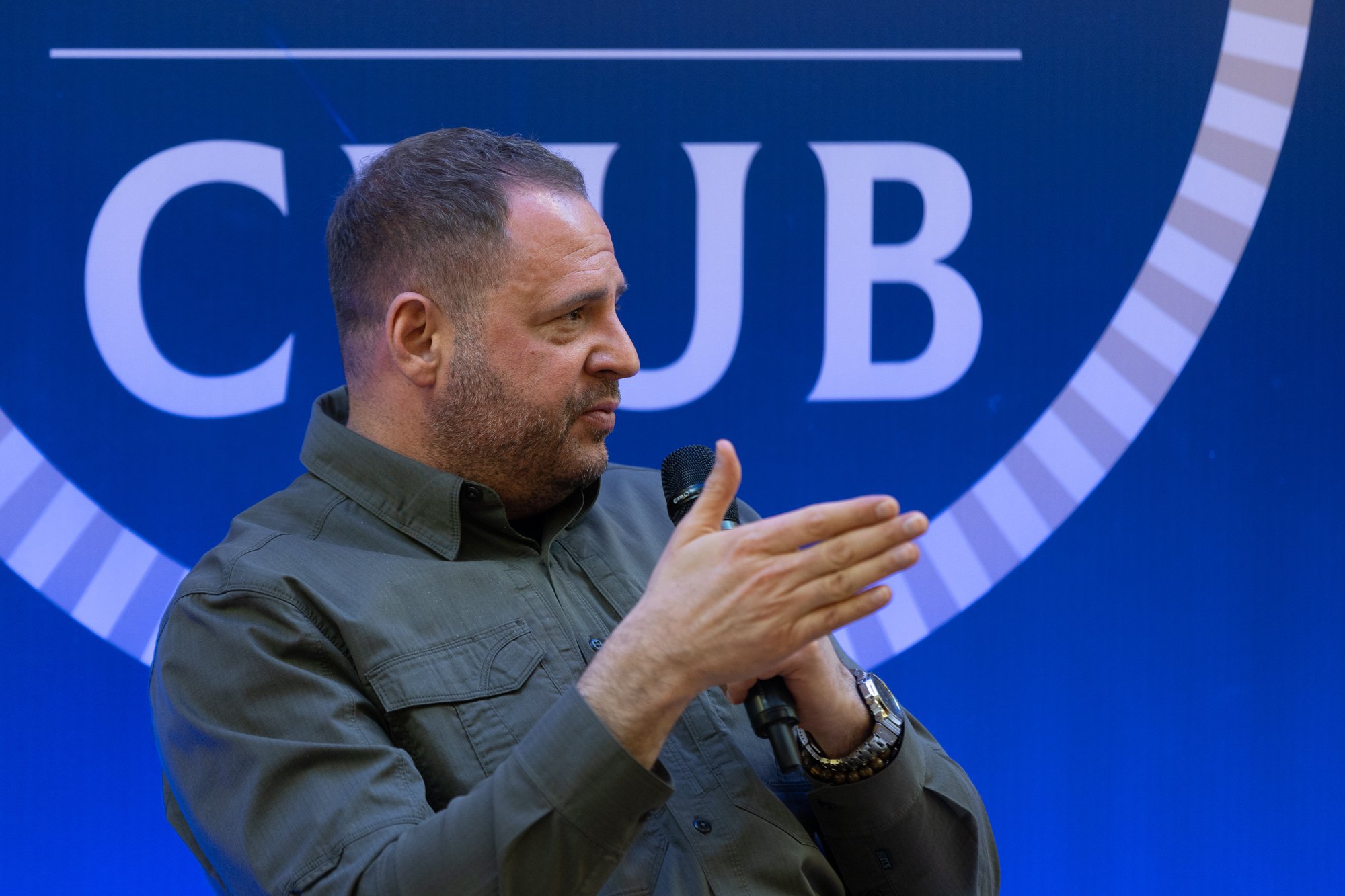
Then we discussed what’s fundamentally important for us — our red lines. We stated them very clearly, and no one argued with us.
But sometime around the fifth or sixth hour of the talks, the Americans pulled out a map, everyone stood up, and they said: “Let’s take a look.” Honestly, for a moment it felt like there might be some talk about territorial concessions. But I want to make it absolutely clear: it was not a conversation about any kind of compromise. There were no discussions about concessions or territories with us — not with our delegation in Jeddah, nor two weeks later in Riyadh.
There was a map. We talked about where things were happening, where the front line was. Where things were, how it started, what counterattacks were planned, what succeeded and what failed. I don't know why, maybe it was the translation or something was misunderstood by the journalists who interviewed Mr Rubio, but we did not have any talks about territorial concessions. We have made it very clear that Ukraine will never under any circumstances recognise any occupied territories.
Pavlo, the latest negotiations could be said to have been your premiere. After 4 April, Secretary of State Marco Rubio said that the US expects Russia to react quickly to the outcome of the latest talks: "We will know in weeks, not months, whether Russia is ready for peace." As of now, it has not demonstrated such readiness, which is obvious. What substantive steps do we expect from the US before the next meeting?
Pavlo Palisa: We are ready for further negotiations. Obviously, what the Russian Federation is demonstrating differs from the expectations of the American side. Therefore, the demonstration of their will to achieve a sustainable peace, I think, is also appreciated by the US administration. In the near future, I hope the US administration will respond to this.
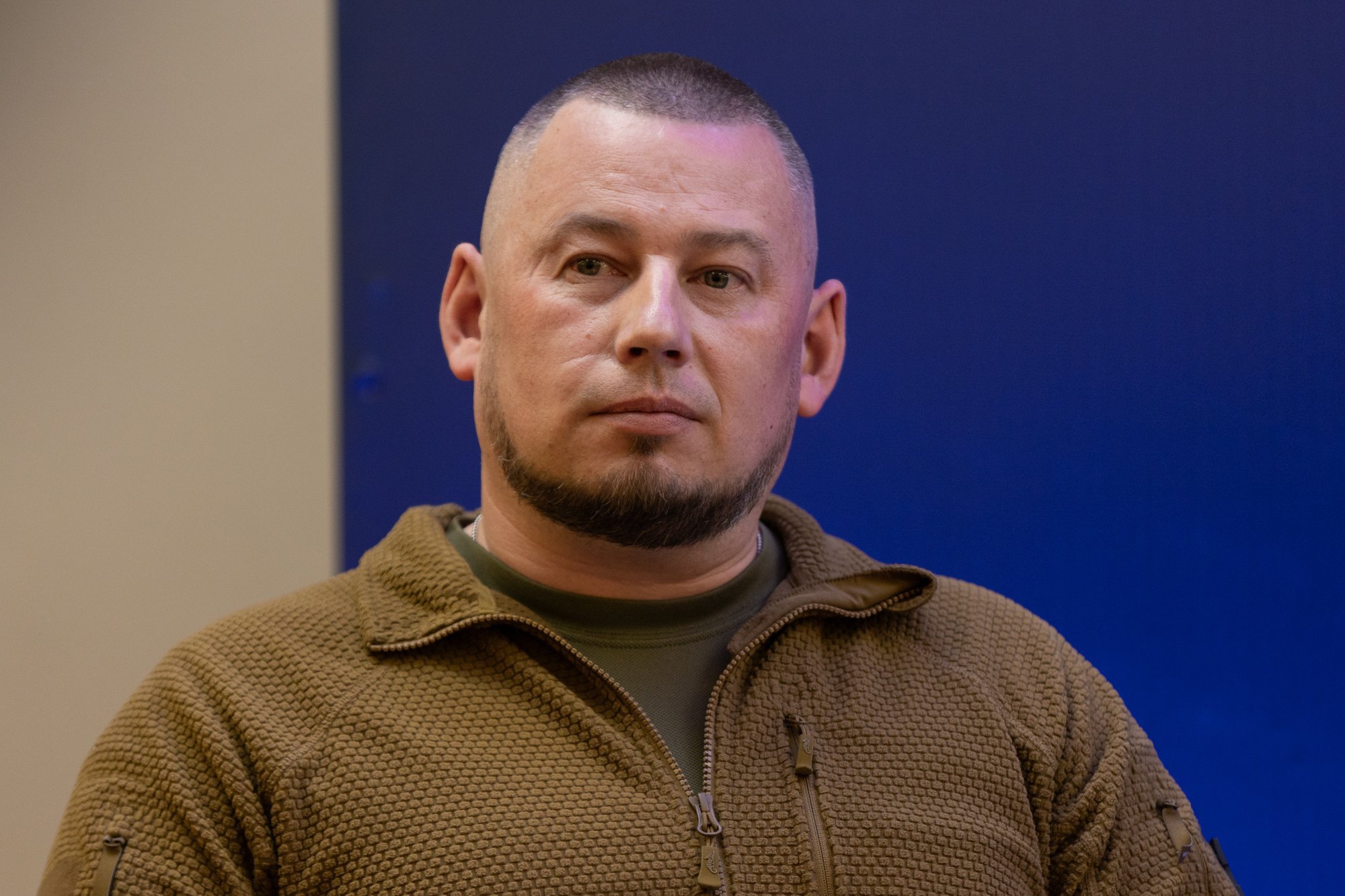
Let's get back to the question of the American reaction. Are we just going to wait for them to react? Do we have any instruments of influence?
Andriy Yermak: We are not waiting for a single hour. We work every day. We communicate at different levels. Let's look at what happened: there was a meeting in Jeddah (I think it was quite successful), then there was a telephone conversation between our president and President Trump, which was very meaningful and substantive. Then there was a meeting in Riyadh.
The main results were that aid resumed, intelligence sharing resumed, and the Americans publicly said that they had no questions for Ukraine - Ukraine did not start this war, but is ready for a just peace.
In Riyadh, even the composition of our delegation demonstrated our attitude. The delegation was headed by the Minister of Defence, and included deputy heads of the Office, the Deputy Minister of Energy, and representatives of the General Staff. In other words, we came ready to talk about all the details of the ceasefire, mechanisms, etc.
As a result of Riyadh, we issued a communiqué, a final document between us and the Americans, which corresponded to what we had discussed.
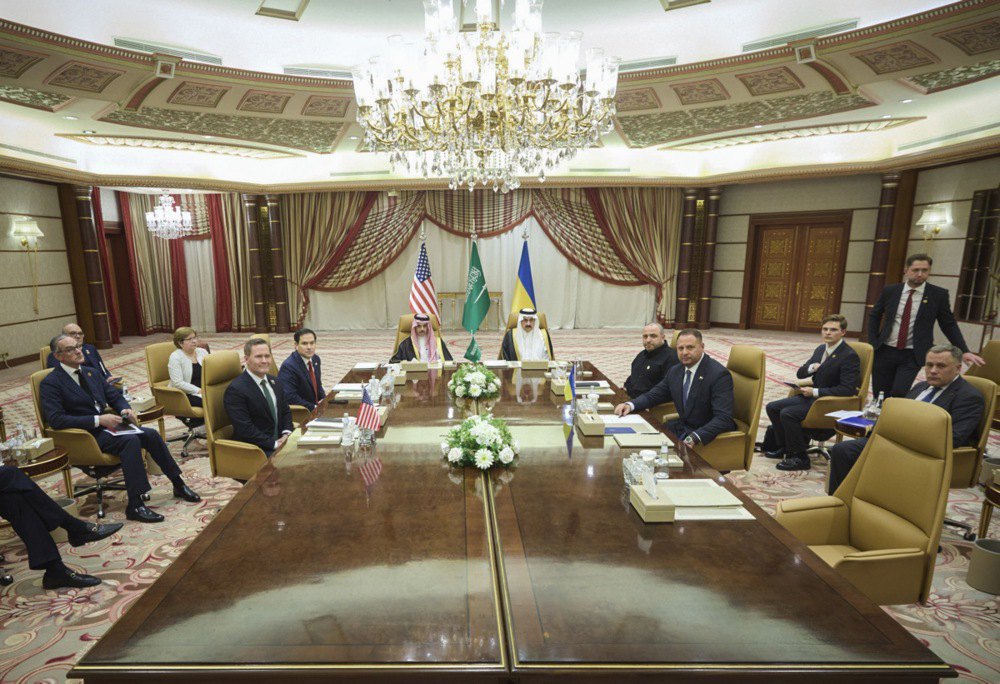
Yes. Then there was a document that was not discussed with us, but which differed in the only way that the Russians put forward the same conditions that led to the termination of the grain corridor organised by Turkey, which were absolutely ridiculous - to lift sanctions on the bank of Patrushev's son, Swift, nothing new. And then, to the surprise of everyone, and especially the Americans, a third document appeared, which no one had seen at all, and this was the last shot.
That is why today there is a change in the attitude of the part of Americans who believed that a compromise could be found with Russia. It hasn't happened yet, but it's starting to happen.
Our position is absolutely clear: until the United States starts to put pressure with new sanctions, new actions, new support packages for Ukraine, nothing will happen. Russia can only decide something when it is in uncomfortable conditions.
"It's hard to talk about an ‘energy truce’ after Kryvyy Rih"
Andriy Yermak: I would like to add a very important point that first came up during a telephone conversation. When our president told President Trump that while you have not yet made a decision on new packages, we are ready to buy Patriot systems today. For the first time, there was a fairly positive reaction. He said we will start working on it.
Please tell us the price we are willing to pay for them.
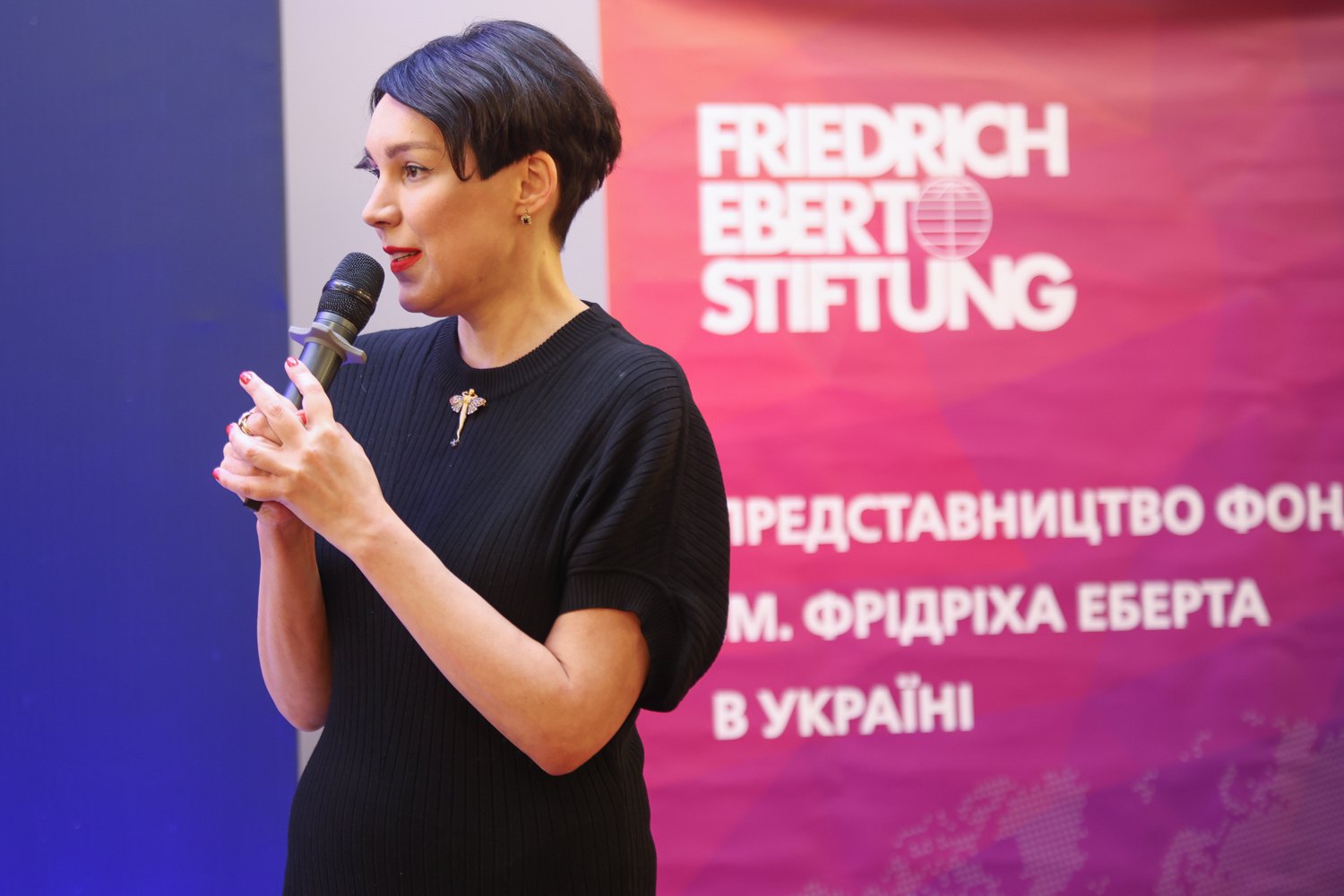
Andriy Yermak: The price was not discussed. But over the past three years, we have come to understand the pricing structure.
What is very important is that today we have an absolutely clear position, which is difficult not only to criticise, but even to argue against. It is difficult to talk about an ‘energy truce’ after Kryvyy Rih. We need to talk about a complete ceasefire, very clear monitoring and control. It is important that this control is provided by the Americans. With the involvement of our European partners, if they are ready. I know that some of them are ready.
And the second important step is a big humanitarian track. What this means is that we have clearly understood over the years, if there is a decision, how many of our military prisoners can be exchanged, how many civilians can be returned, and how many of our deported children can be returned.
These two steps must take place in order to think about some kind of negotiation format. We are talking about 30 days, a month of truce. This is enough to understand whether it works or not. The control mechanism should be not only on our side. We are already doing it today. We inform our partners, primarily the Americans, about every violation, every attack at the level of the Ministry of Defence and the intelligence community. But this is not enough. They must monitor all events themselves, and there must be accountability. The first violation, the second, the third time? This will be the subject of discussion today.
Energy is the next block. On 25 March, Ukraine and Russia agreed not to attack the energy sector. This agreement was supposedly in force since the 18th. But the strikes happened soon after. President Zelenskyy said that the violations had been recorded, and we had passed the data on to the Americans. Has there been any reaction from them yet and what do we expect specifically in the case of the energy sector?
Andriy Yermak: Firstly, nobody understands why it started on the 18th of March. It was the Russians who came up with something. We started counting from the moment the meeting in Riyadh ended. And when everything was agreed through the American side. And I emphasise that all the meetings were held separately. That is, first, there were meetings with our delegation with the Americans. And only the next day with the Russians.
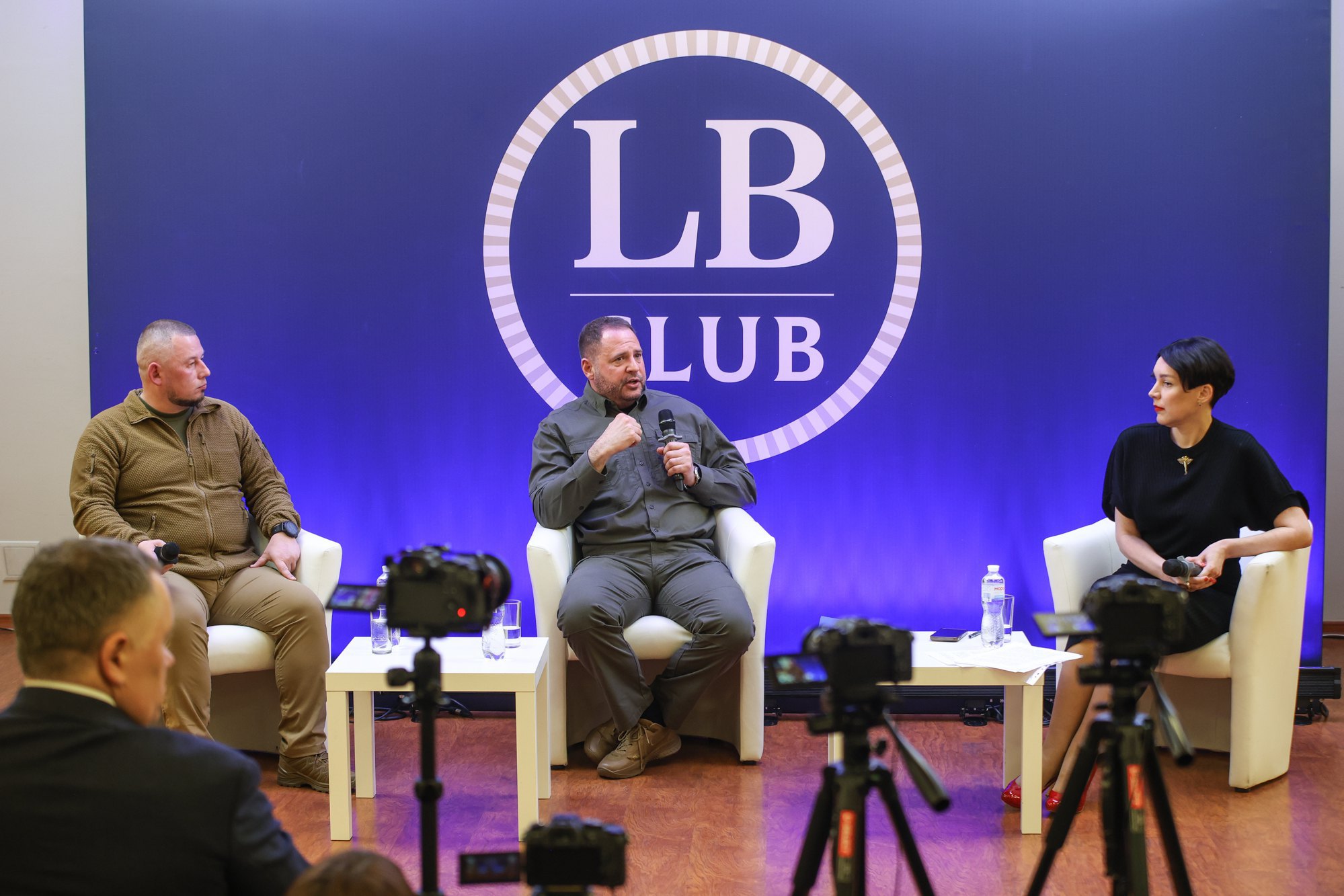
Of course, as a responsible country, we always fulfil everything we agree on. Even with the Russians. But nothing changes with them.
And it started from day one. We agreed that we would provide a list of facilities that are not subject to attack. We provided it. They shortened it. So for some reason, the ceasefire in the energy sector alone also became somehow ‘incomplete’. Some discussion started because of the Americans. We said that we did not understand why it was necessary to do this if we could not even agree on energy.
The next day, we started to record very clearly, and we have experience from previous years of how to negotiate with them. This is not new - there were Normandy talks, there was the Minsk process - and I immediately told our partners about this - we had 200 rounds of negotiations. Every time we managed to agree on some kind of truce, some kind of exchange, it was a great joy. The exchange, of course, remained a joy. And the truce would end in just one or two days.
What was the reaction of the Americans? To be honest, they understand that there are violations by the Russians. During the war, we believe in facts and actions. And there can be only one action. We clearly understand that the Russian military machine should not be fuelled by finance, so we need to keep the price of oil down, impose additional sanctions on the banking sector, and impose additional sanctions on propagandists.
At the same time, our sanctions group, created with Professor Michael McFaul, is not stopping either. Mr Vlasyuk (Vladyslav Vlasyuk - Secretary of the Yermak-McFall Expert Group on Russian Sanctions - Ed.) returned from Brussels with new lists, new data, new information. We are not stopping. Unfortunately, not everything happens as fast as we want. Unfortunately, even the sanctions we have today took three years to implement.
Why was the group created? Because the first sanctions looked nice, but they didn't work at all.
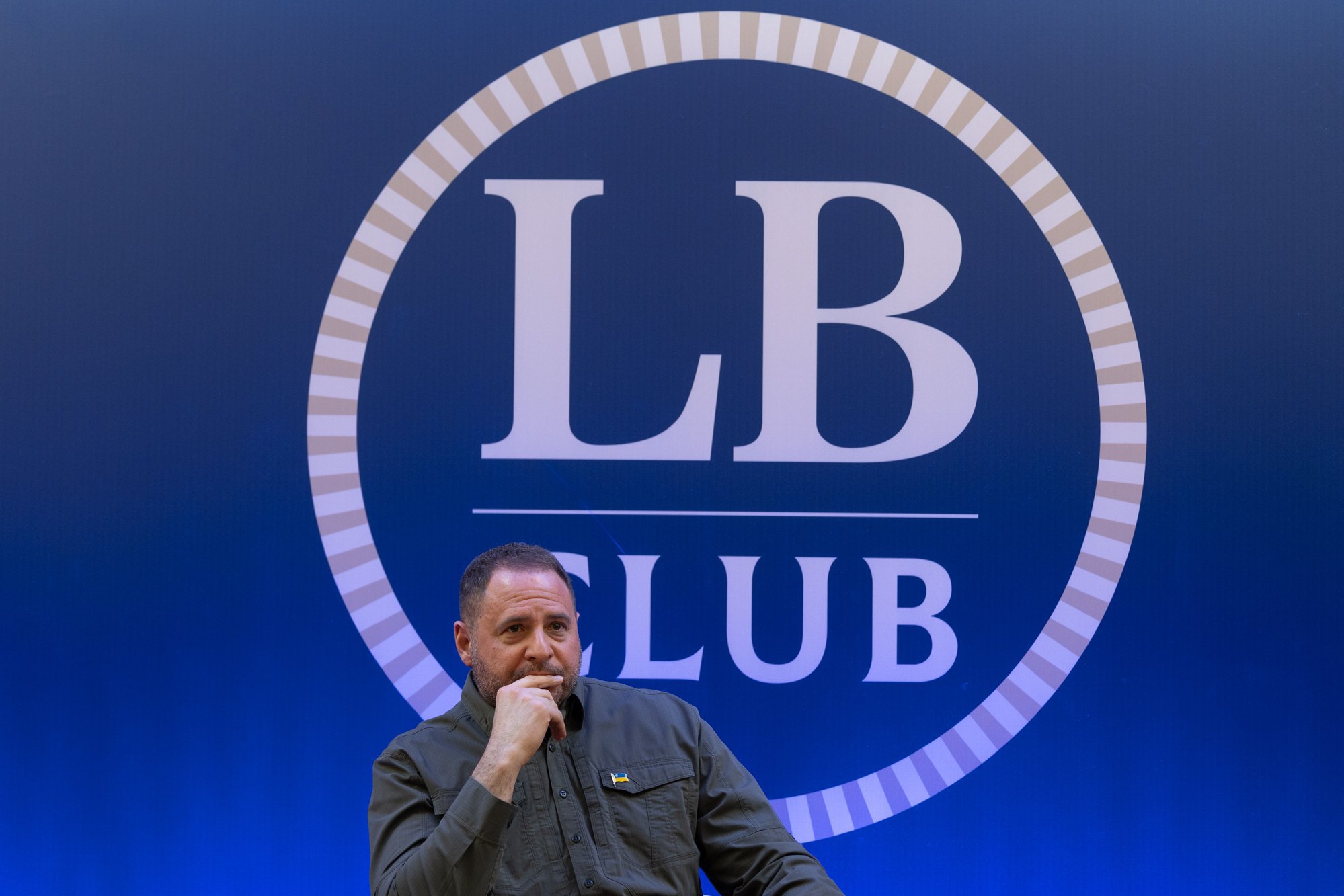
And this (unanimity on not lifting sanctions - Ed.) is very good. It affects the position of the United States, among other things. In recent days, we have heard both the Treasury and the State Department say that they are not considering lifting any sanctions for the time being.
To be honest, after Kryvyy Rih, I even went back to what I had been doing for 22 years: at night, having direct phone numbers of American partners, I simply send these terrible photos and videos, even without greetings.
For example, to whom?
To officials.
To whom?
For example, to General Kellogg.
And what was his reaction?
Like a normal person who sees civilians and children being killed.
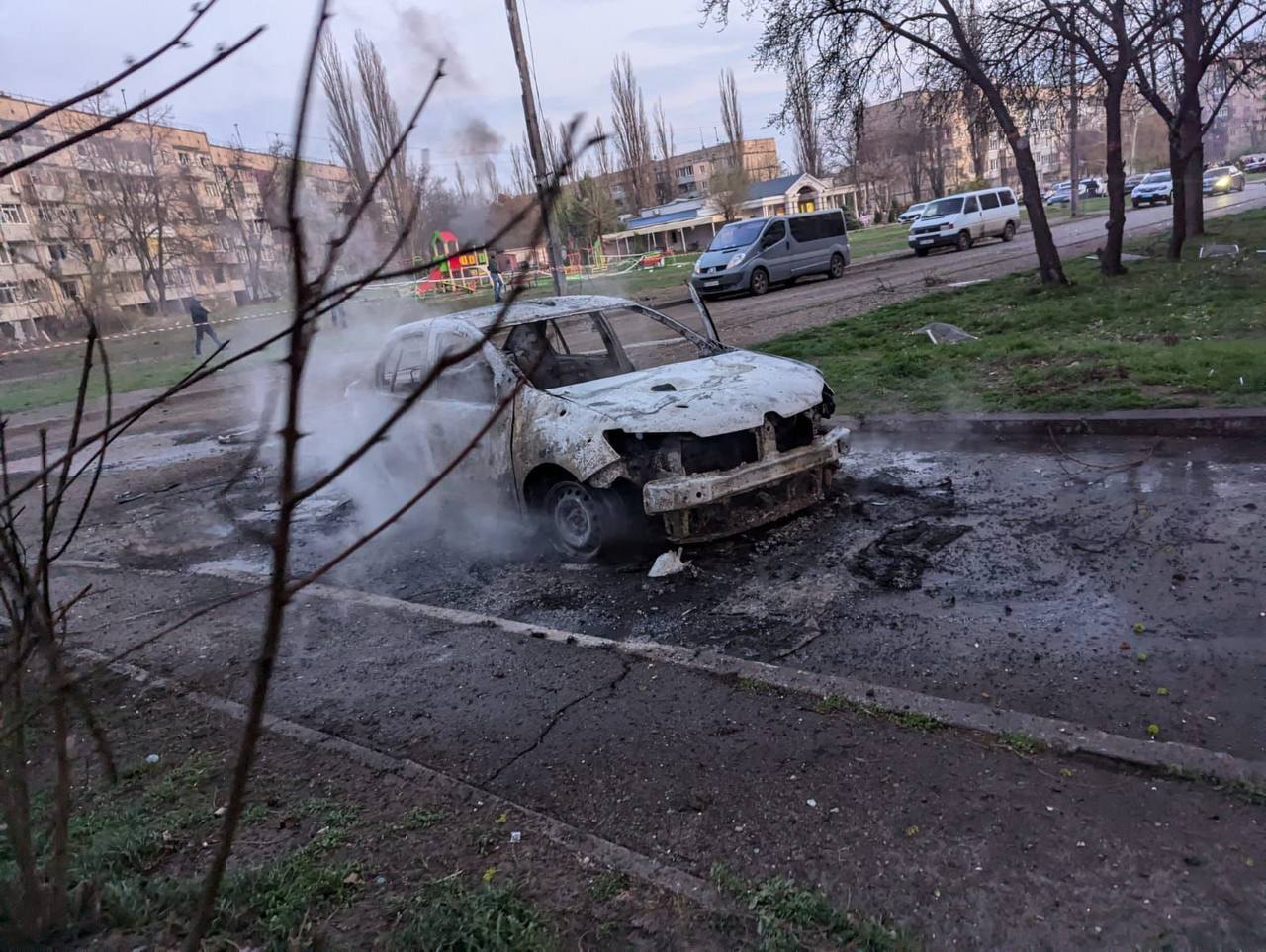
"The deployment of a contingent on the territory of Ukraine is possible only after a ceasefire. This is what we are actually working on now"
I have an important quote about military-technical cooperation. The State Department has stated that a detailed discussion of ‘differences and what will happen after the war, when it comes to a lasting peace, can only take place if a ceasefire is first achieved’. Do we agree with this approach? Or is it still worth preparing in advance?
Pavlo Palisa: This is probably about security guarantees. First of all, it is the contingent of partner countries on the territory of Ukraine. And, of course, we all understand that the deployment of the contingent on the territory of Ukraine is possible only after the ceasefire. This is what we are actually working on now.
I have a question for you not as an official, but as a military officer. From a military point of view, where exactly, in your opinion, in what form and what kind of contingent should be deployed?
Pavlo Palisa: I will try to be as frank as I can be about this. We have proposed a plan to our European partners. At the moment, they are assessing it from a military point of view and holding relevant consultations in the political sphere.
Andriy Yermak: It is very important to talk about the principles that we proclaimed in Jeddah.
The first is that, as I said, we will never recognise any occupied territory.
Second, no talk of neutral status.
Third, nothing about any restrictions on our army. We are not even ready to discuss this. The only thing is that when we become a member of NATO, then there may be some conditions within the framework of joint strengthening of the alliance.
The fourth is security guarantees. You understand that we have a bad experience, unfortunately, and we are all going through this terrible war, so we will not allow a repeat of Budapest, Minsk, Normandy, situations where OSCE observers were absent for hours. This is not even under discussion. Today, we are taking a very balanced approach to all the details.
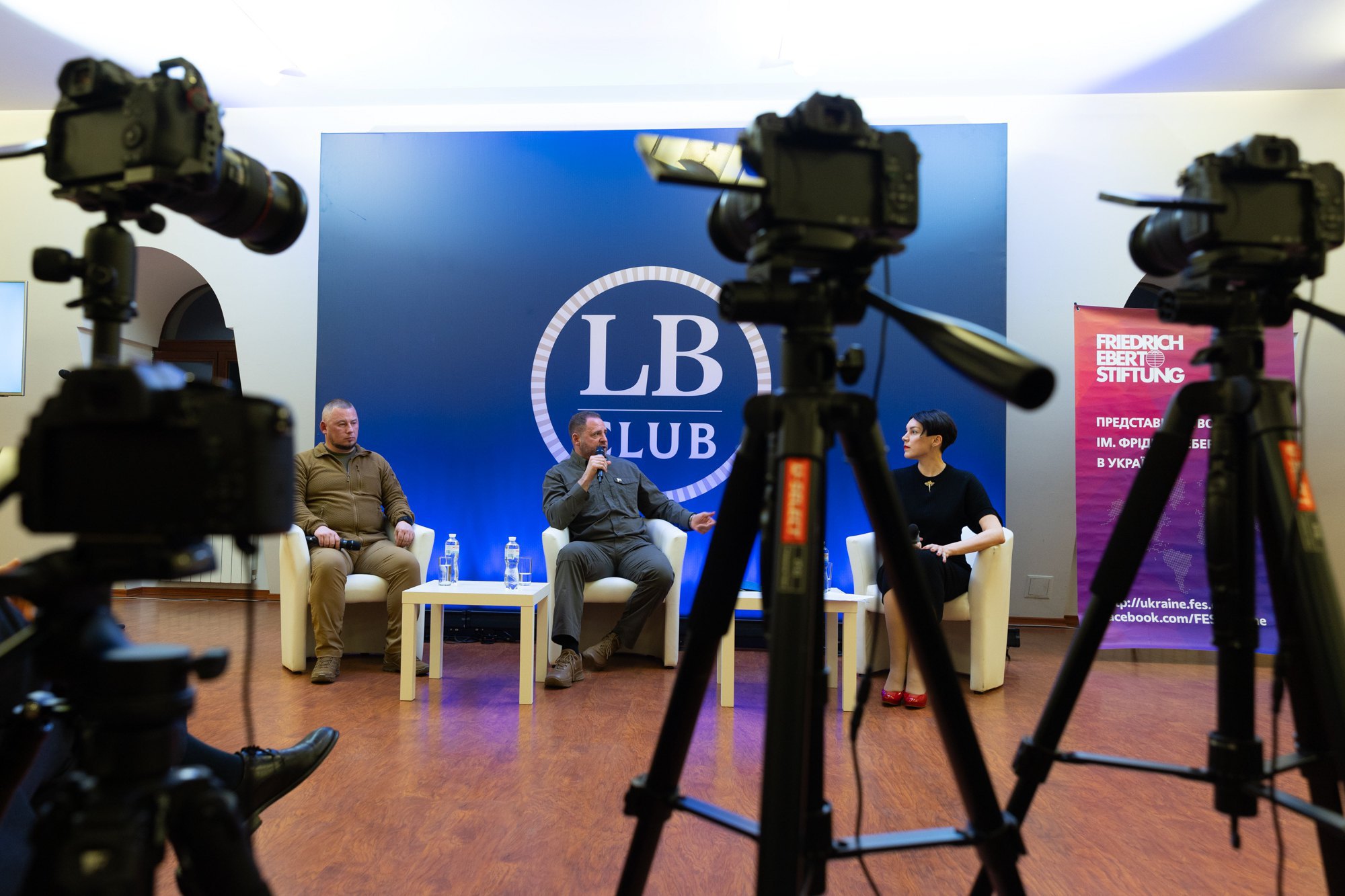
Fifthly, we need to return all our people. This work is ongoing.
The sixth is, of course, responsibility, compensation, restoration and so on.
Our partners know all this. We have not heard a single objection from the American side that they do not accept or agree to anything. And this is what our strategy is based on today.
"We need an assessment of what kind of armed forces the enemy will build in the near future and what kind of Armed Forces of Ukraine are needed to maintain parity"
We have quite a long list of what we understand as the security guarantees we need - NATO, military contingent, and the return of our prisoners and children. Mr Palisa, can you name three items from a military point of view that we definitely need to guarantee our security? A minimum programme.
Pavlo Palisa: I am convinced that the most effective security guarantees for Ukraine are powerful, modern Defence Forces with a high degree of readiness. The question now is not how much they will cost, but what kind of forces are needed to guarantee that 24 February 22 will not happen again.
Which ones? Please explain.
Pavlo Palisa: The ones that, by their combat capabilities, will exclude aggression against Ukraine.
That is why we need to assess what kind of armed forces the enemy will build in the near future, and what kind of Armed Forces of Ukraine are needed to maintain parity.
Andriy Borysovych, what is your minimum security programme? Three points. But only three!
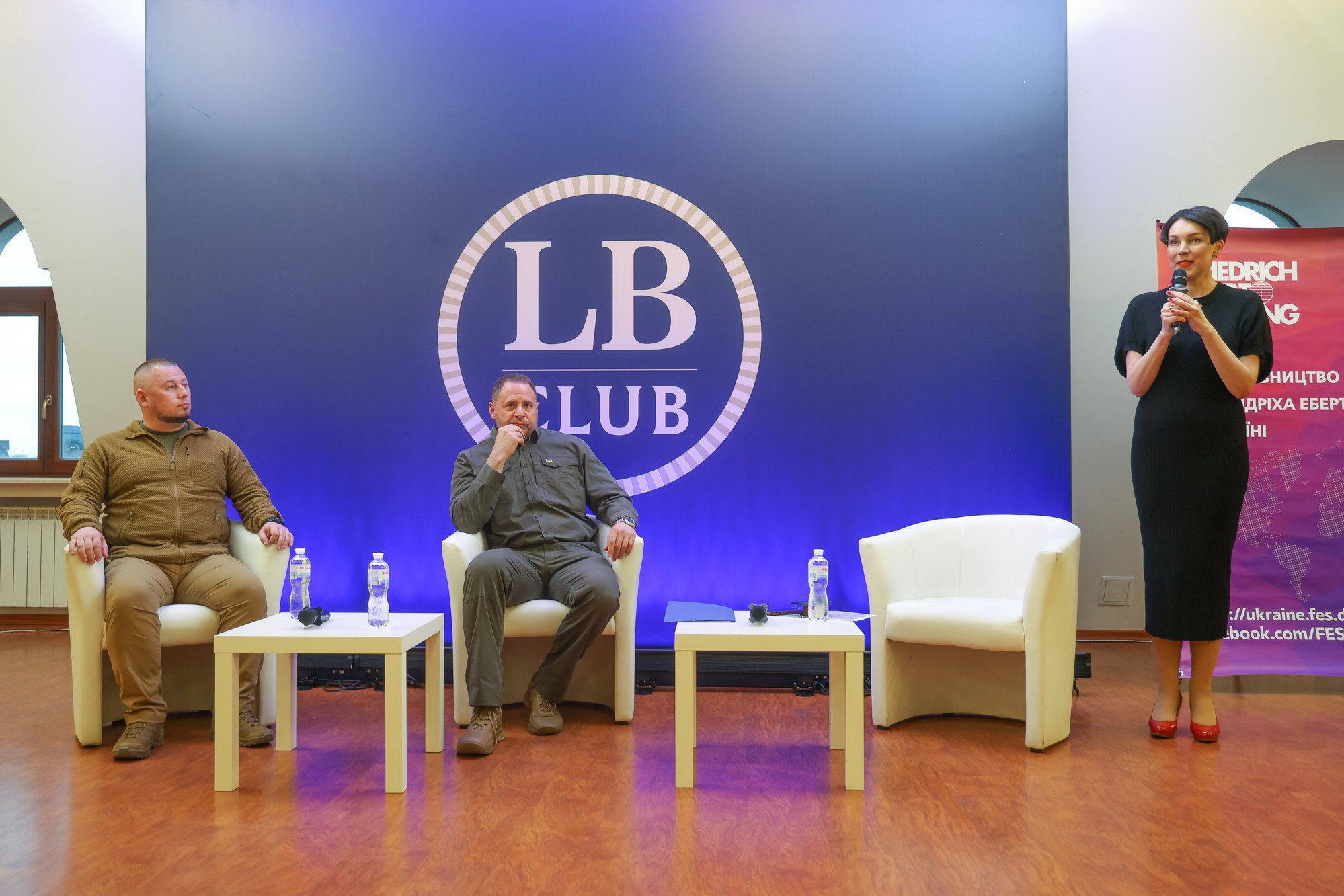
Andriy Yermak: The first option is NATO membership. We’re not taking this issue off the table. No one is abandoning it, but we’re reasonable people and understand that without the agreement and support of the United States, it’s simply not possible. We continue to talk about it, even if it means taking the harder road. But we believe that in the end, after all the discussions and consultations, everyone will realize that this is the cheaper, clearer path and a real security guarantee.
The second option — I’ll add to what Pavlo said — is a modern and powerful army of a size that we determine. A capable army. We know exactly how much we need to fight and how much the enemy has. An equipped army. On top of that, a foreign military presence. Also, there’s currently a discussion about a potential mechanism similar to Article 5 — without actual NATO membership. For now, that’s just a theoretical idea.
And the third option: if “Article 5” isn’t possible, then we add a “support package” — and we already know exactly what that would look like. We’ve gained this experience over the past three years, and such a package should be activated within 24 hours. We clearly understand what works and could serve as experts ourselves. What weapons are needed — they could even be stored in Ukraine without being used until necessary.
…We’re not just leading in drone technology today. At the start of the war, only 7% of the weapons we used on the front lines were domestically produced — now it’s over 40%. When our close friends and partners came for the third anniversary of the full-scale war, the final part of the program was a presentation of what we’ve achieved in our defense production. The President of Finland, Alexander Stubb, came up to me and said: “I’ve never seen anything like this — can we show what we saw here across all European countries? People don’t even realize what’s possible to accomplish in just a few years of war.”
Over the past year, there’s been a really positive shift in support for Ukrainian defense manufacturers. I think it’s worth highlighting the success of the Danish model, where our partners fund contracts that the Ministry of Strategic Industries signs with Ukrainian manufacturers. That’s seriously awesome.
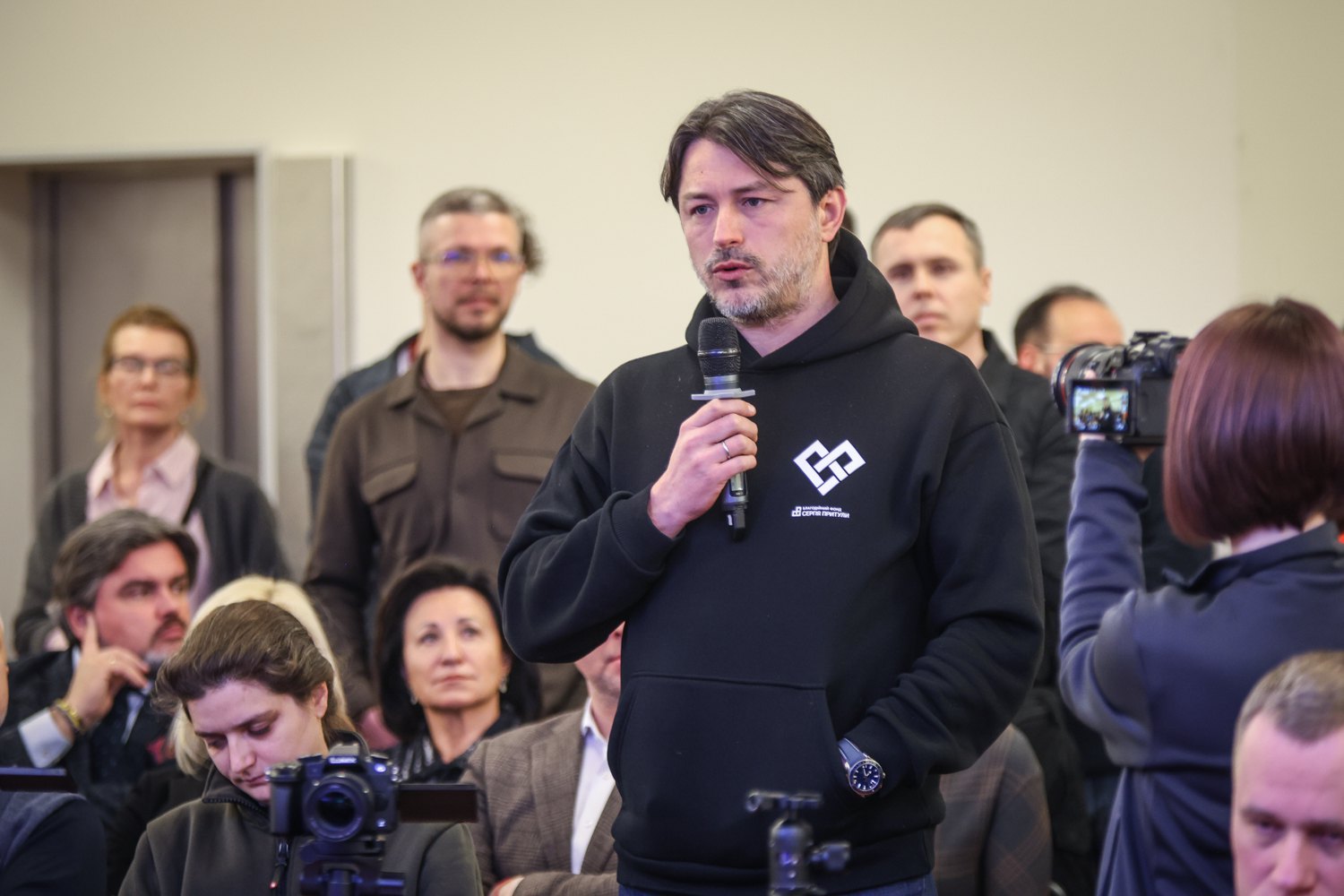
Serhiy Prytula, founder of the Serhiy Prytula Charity Foundation:
Recently, there’s been a noticeable trend where defense companies from partner countries are headhunting Ukrainian engineers. Under different circumstances, that wouldn’t be a problem — but we’re at war, and we need these specialists here, in Ukraine. Right now, they’re moving to EU countries, to Taiwan. The manufacturers our foundation talks to ask: under what conditions would it be possible to export Ukrainian-made weapons abroad? What should we tell people?
Andriy Palisa: I haven’t heard that this is a widespread issue, but I’ll definitely look into it in more detail.
The thing is, right now Ukraine is the world’s largest importer of weapons. Until we reach a ceasefire, and until we’ve built up the reserves we need to fulfill our defense tasks, I don’t think we’ll be selling weapons abroad.
Andriy Yermak: We understand what you’re talking about — that specialists might leave and not come back. We know this is a problem. The only solution is to ensure they have such conditions here, in their own country, that they don’t feel forced to leave.
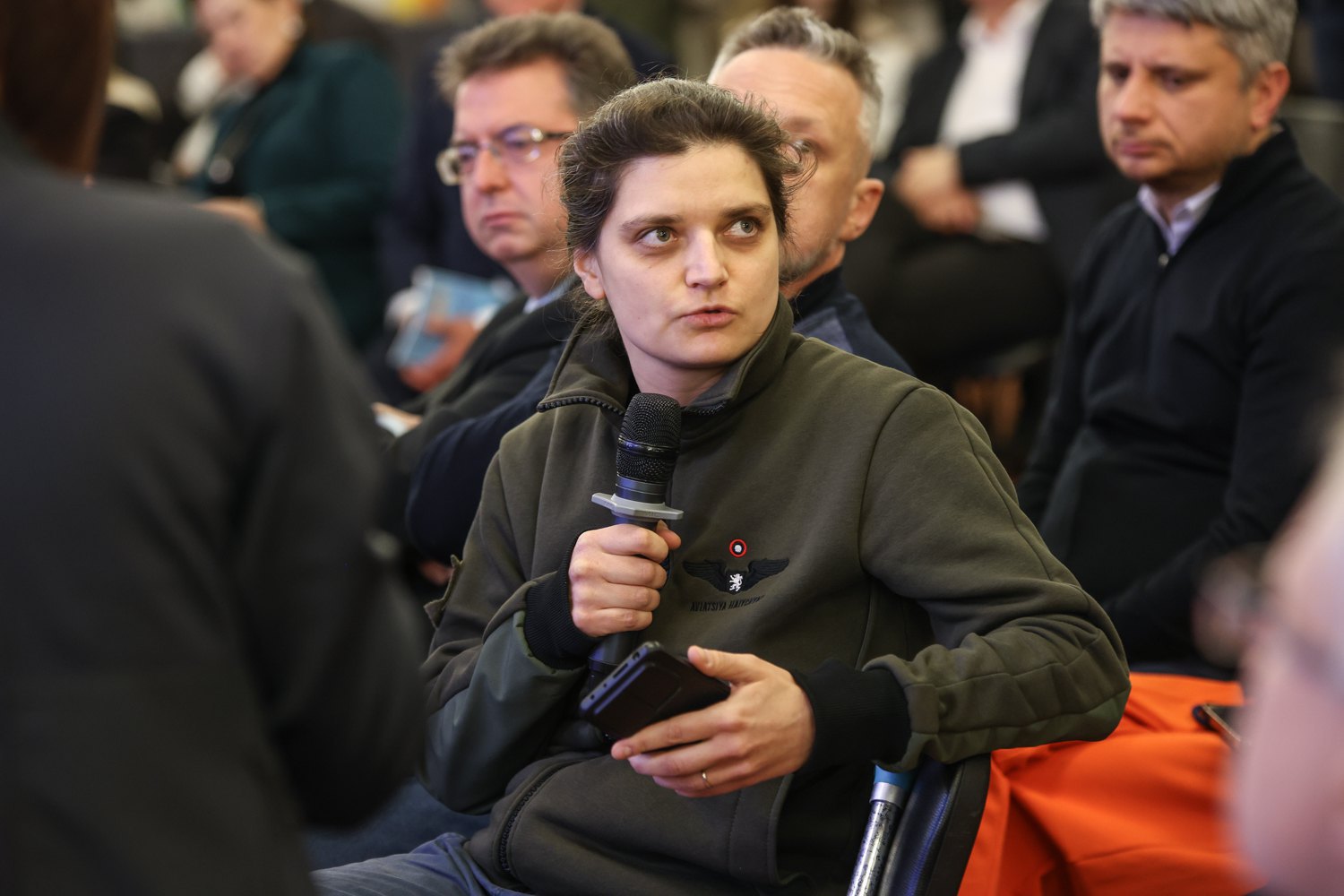
Mariya Berlinska, founder of the NGO Aerial Reconnaissance Support Centre, head of the Victory Drones project for technological enhancement of Ukraine’s Security and Defence Forces:
I fully agree with the statement that the only true guarantee of our security is our army and our security and defence sector.
We need to build self-reliance. Right now, the army is largely sustained by technology. On some fronts, up to 70–80% of enemy losses are caused by drones, ground systems, and other tech solutions that enable us to hold the line.
Moreover, this isn’t just a trend of 2025. Back when the Americans delayed signing the supplemental for over six months, the frontline units still held their ground, largely relying on FPV drones, bombers, and similar technologies.
We see it and feel it in Ukrainian society, in the news, and in online discussions — there is unprecedented pressure on our military and political leadership. If it’s visible in the public space, we can only imagine how intense it must be behind closed doors. It’s crucial that we maintain our agency, because it speaks to our sense of dignity. And right now, it’s only the Ukrainian people who are paying the highest price in the world for freedom — for Europe’s security and not only theirs.
We can be blackmailed with anything — weapons, resources, the lack of intelligence support, or the loss of vital communications like Starlink — which is why building our own capacity in the tech sector is absolutely essential.
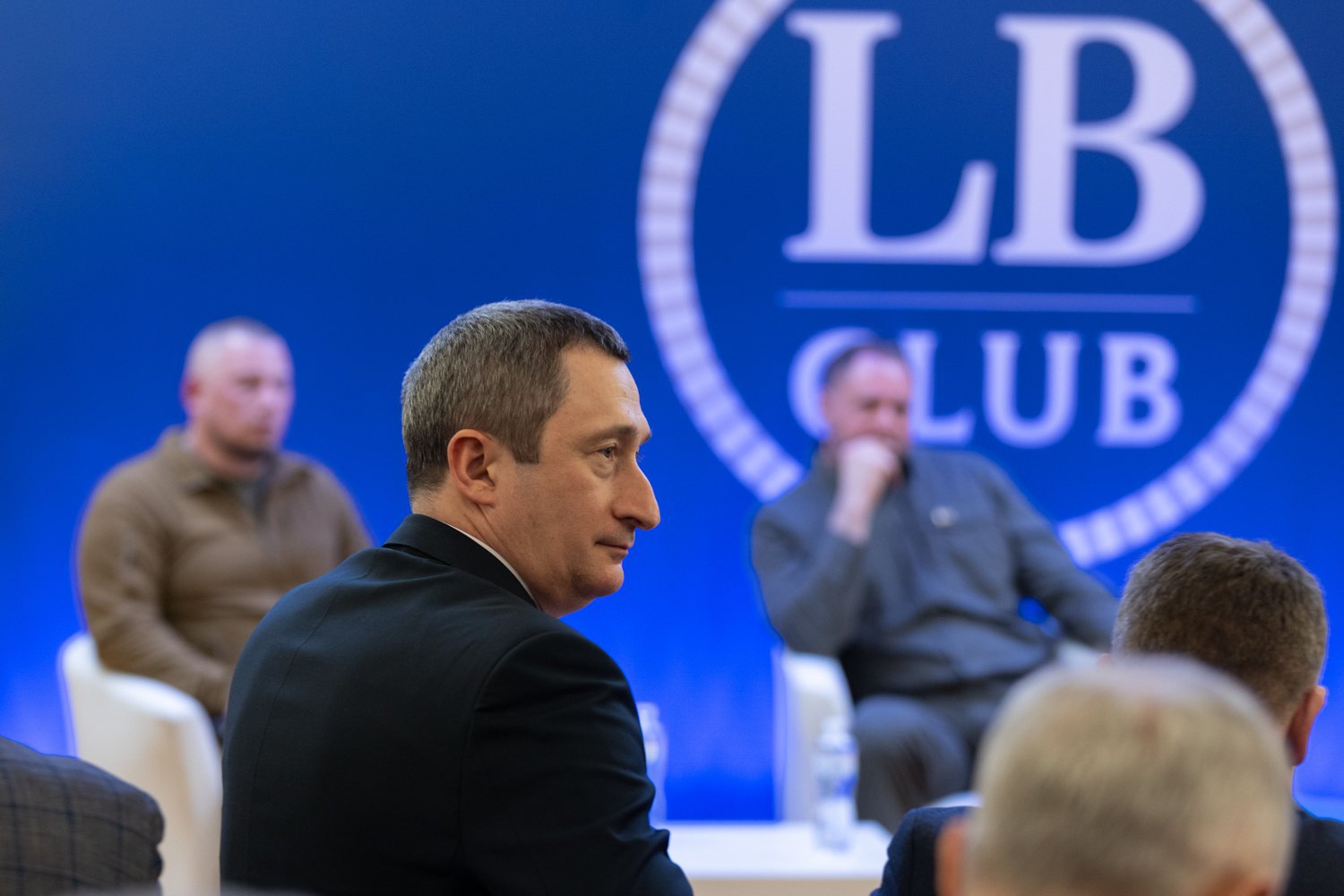
I will say an unpleasant thing, but we have fundamentally hit a ceiling. Because the low-tech that we have been actively developing has performed an absolute technological miracle over the past three years, when simple, cheap technologies have shown extraordinary results - the destruction of enemy equipment worth billions, the burning of their refineries, airfields, logistics hubs, and so on. We have exhausted the capabilities we have. Now we are stuck with the fact that we need to develop basic science, otherwise we will not go further.
I understand that these are unpleasant things, but this is what engineers and manufacturers say: we are already reaching our end. The enemy is actively working on countermeasures, and that is why we do not see any Russian ships sunk. Therefore, I will not name the success rate of our ‘’deepstrikes‘’ here, because it should not be public information, but believe me, it is falling. And we are often wasting millions and millions of dollars. We need to change our approach.
I agree with the thesis that the fact that we are sitting here now, three years after the invasion, is a miracle. The situation was so bad. But we have come a long way, and we need to change our approaches now.
And I believe that we need to reprogramme ourselves for the long game. And the long game is an investment in the technological militarisation of society. This is an investment in technology as the only chance for us to survive, so that in the game of attrition, for resources, we can defend ourselves through a completely different range of technologies. As I think everyone understands, China, Taiwan, the Middle East, etc. are actively learning from our war.
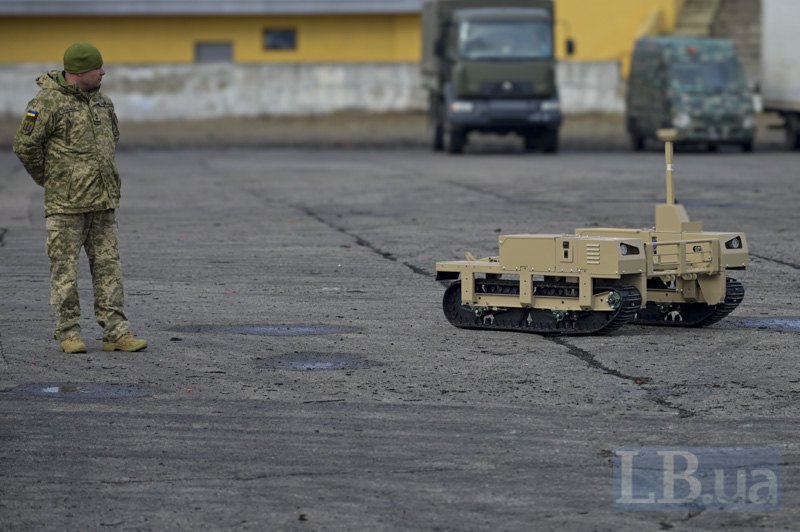
I will say one more unpleasant thing: we have begun to lag behind in the technology war. The Russians are actively scaling up our best practices. For every dollar we invest, they invest 15-20 or more. In fact, a lot of inventions in this war are our inventions, our best practices, our best tactics. But then the Russians are very actively scaling it up.
We are already doing everything with a certain delay for the day before yesterday. And a lot of it is based purely on the heroism of people. But we understand that people are sleeping like clockwork. We have actually worn out our best infantry. There are very few people left who can hold their positions. We understand that we need to hold more and more territories with fewer and fewer infantry. And here, too, technology and robotics are the way out.
What I would like to propose in the form of a question and hear your answer.
Technology will be exported either legally or illegally. This is the first point. It's already happening illegally - the relocation of production facilities, the siphoning off of engineers, the fact that certain Western companies come and buy certain technologies, certain intellectual property, and simply take away people along with them. Russia is now actively exporting its technology - the billions of dollars they have gained through this war, and there are already some estimates.
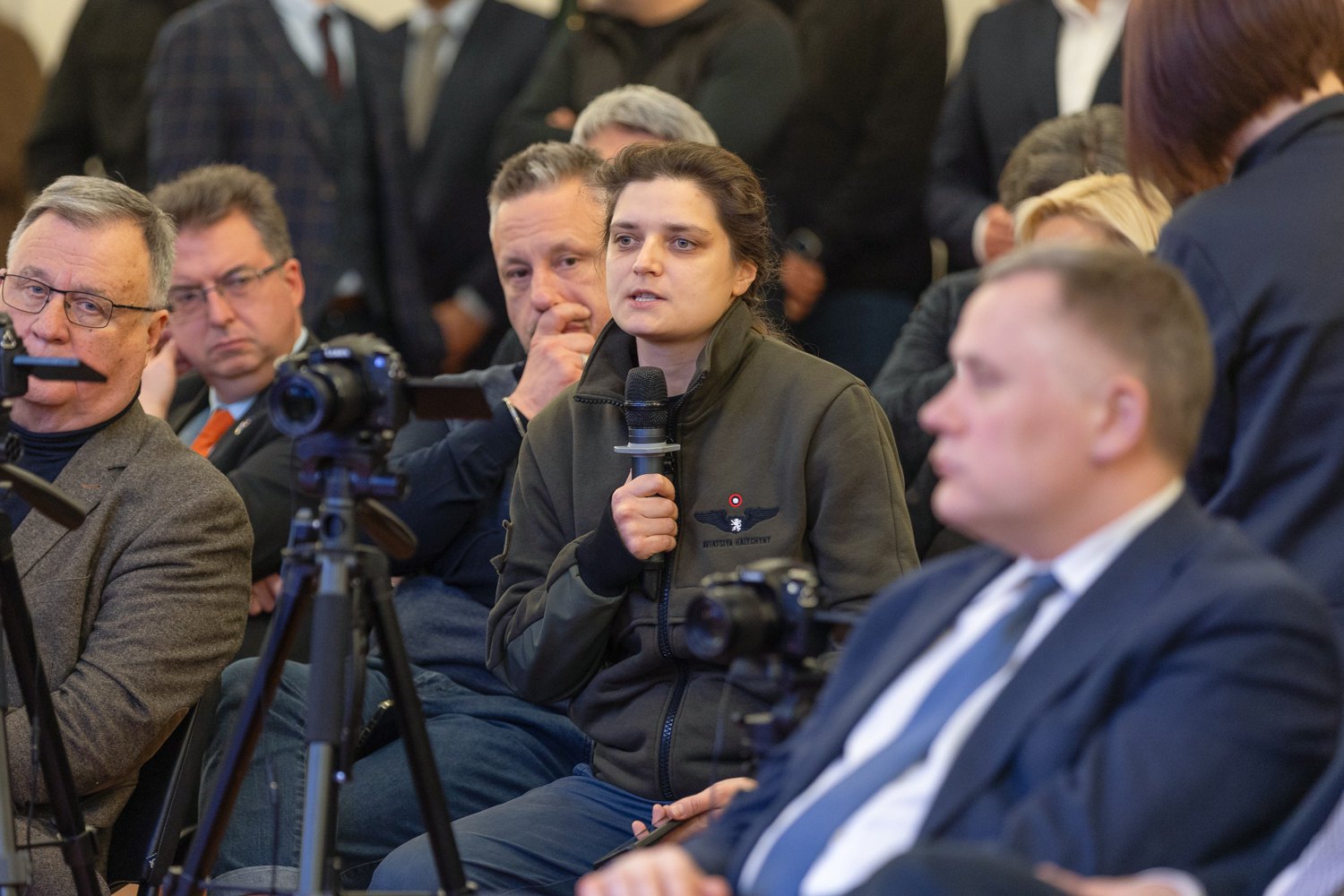
We understand that arms exports are actually geopolitics. To whom to sell, what to sell, in what quantities. I propose, firstly, to enter into a dialogue with technology exporters, to give them an opportunity and to think together with them about which countries are our priority. Because this is not primarily about trade, but about partnership. And it is about demonstrating to our partners that we are ready for such partnerships and that we are investing jointly in their defence capabilities. From the same countries of the European Union. Because, unfortunately, we have become the largest training ground, and we have the most modern war in the world.
The second point. Today, the frontline is actually the trendsetter. Officials buy what the front demands under enormous pressure. This should not be the case. There must be a stakeholder in the state who sets trends and tendencies and says what will be relevant in six months, a year, 16 months. Otherwise, we will constantly be catching up with the day before yesterday and will pay for it every day with hundreds of people's lives.
I propose to think about such an institution. I believe this in the same way that in 2014, during my first flights near Luhansk, I believed that it would be a drone war. I propose to create a separate institution, conditionally, the Ministry of Military Technology, which will be responsible in the state for the component that keeps us going and which actually gives 70-80% of success to the frontline. It will be responsible for forecasting, because now no one in Ukraine can say what trends will be relevant for the frontline, for example, in December 2025 or January 2026 - laser weapons, electromagnetic weapons, ground robots, autonomous visual navigation systems, or something else.
We need to understand that Russia, unfortunately, is starting to get ahead of us in this race. And if we don't institutionalise this now, if we don't start thinking a few steps ahead, sooner or later, with much more resources and support from China, other engineering teams, Iran, we will see a situation where a revolutionary war will overcome us.
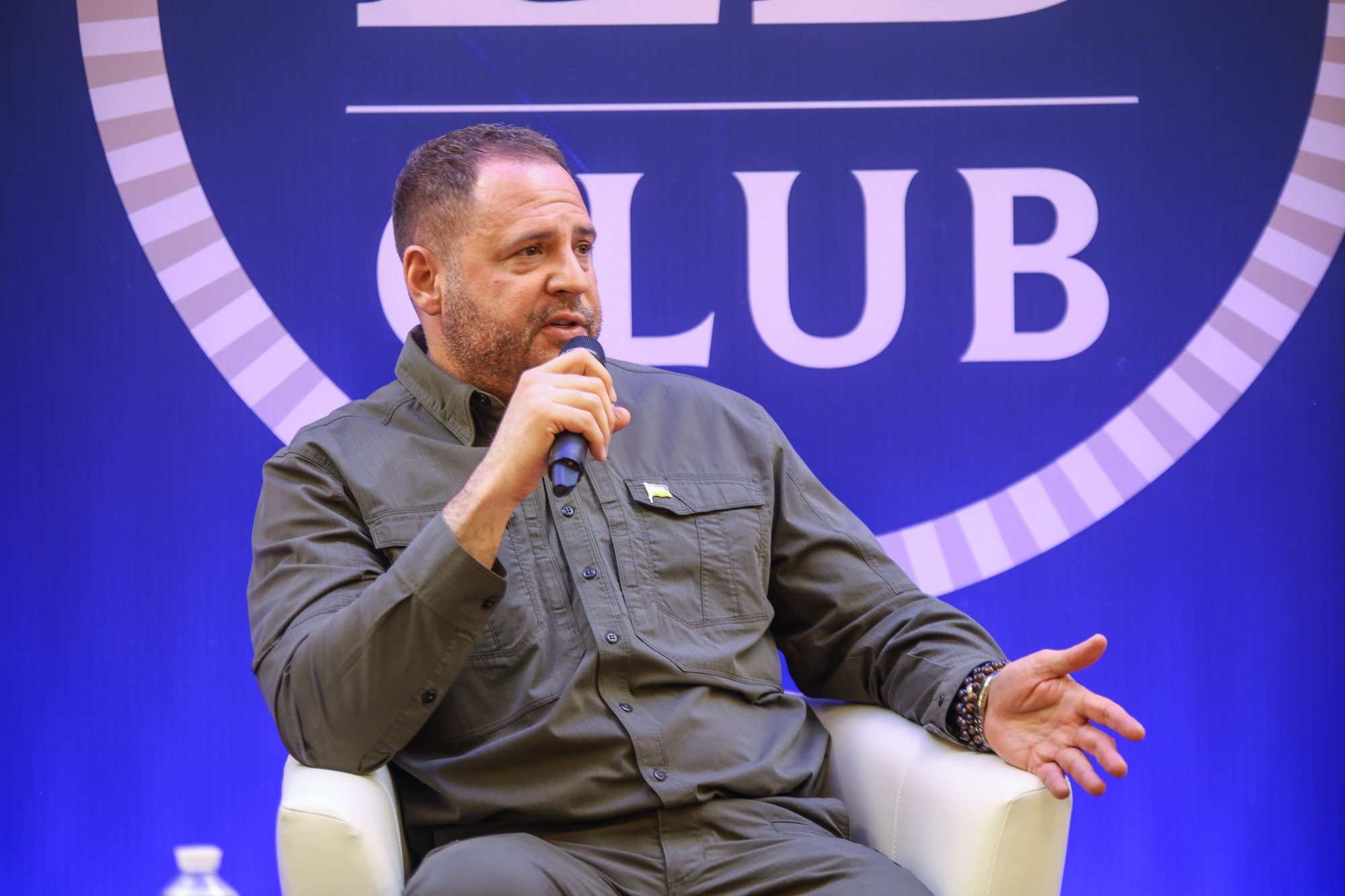
As for the institution, we have the opportunity, we communicate, and we have already done a lot. Your opinion and position are important to us.
And in case anyone doesn't know, I would like to thank Mariya and Lyuba Shypovych for their work on the air side, which concerns the F-16. The President supported this programme, and the relevant people were appointed, who were also recommended by civil society and people working in this area.
So let's talk about the institution. Maybe it's time to do something with a system like the Academy of Sciences, which should still be in line with modern realities.
We need to preserve what we have. Don't forget that we had the best scientists not only in Kyiv, but also in Dnipro and Kharkiv. To be honest, the president has always been concerned about this, he started this programme, but the war happened. Now it is time to return to this. Without science, I fully agree, it is impossible to do this.
Pavlo Palisa: We are already working on analysing what is happening now, making forecasts of what the war will look like in a certain period of time.
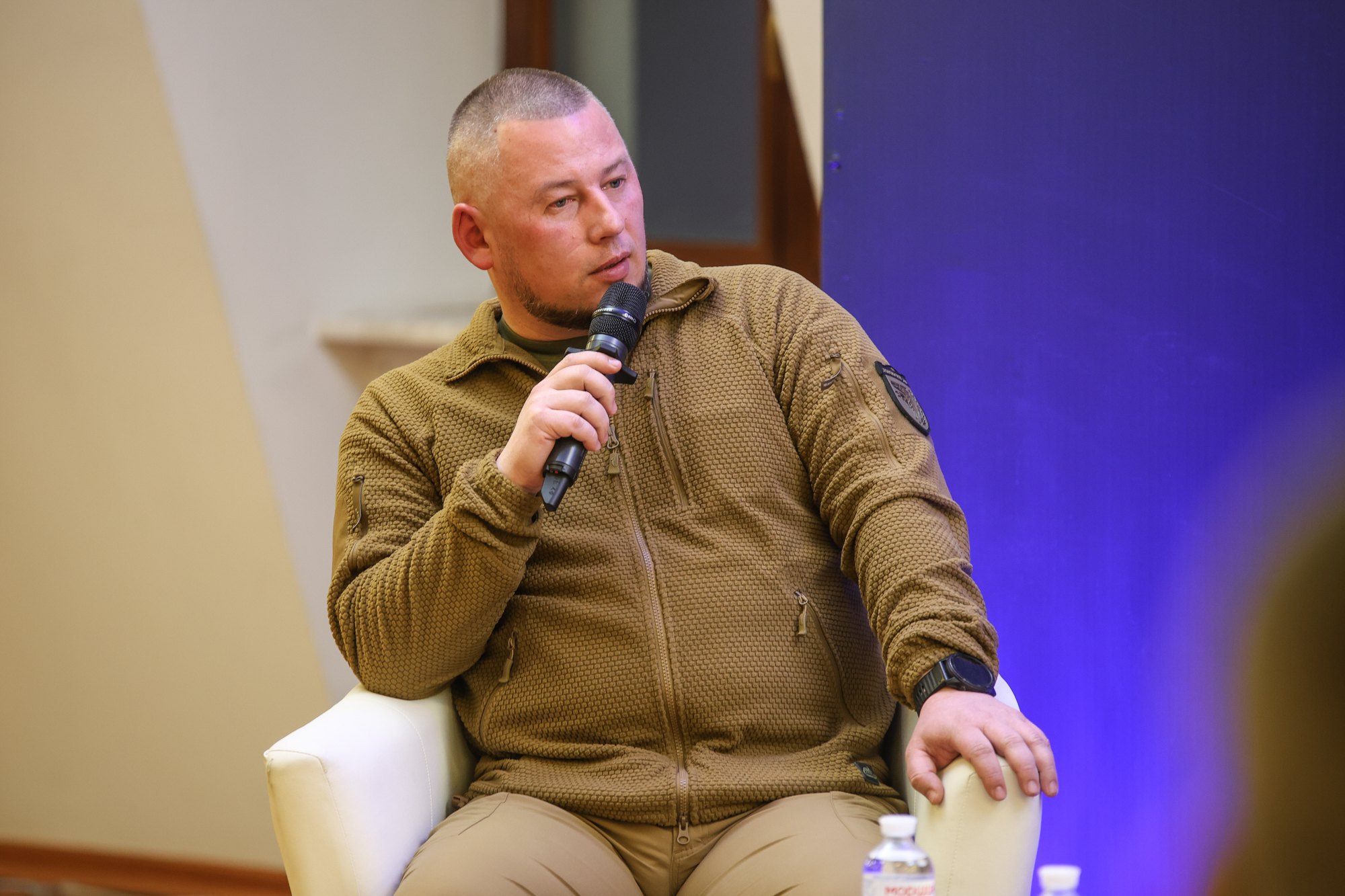
The President's position is that in various negotiations, he invites partner countries to invest in our defence industry. I am in favour of this gaining momentum. And, in fact, after the war is over, we can share both technology and production with those countries that helped us in difficult times.
As for the war of the future and its assessment, we are well aware that we cannot compete with the enemy's resource base. That is why our training and our development in technologies and their application should be based primarily on the principle of asymmetry. And now we are working on it, perhaps for obvious reasons it is not public, but in the near future, I am sure, we will have Ukrainian analogues, conditionally, of Patriot and other types of weapons that we needed and need, and with which our partners are helping us.
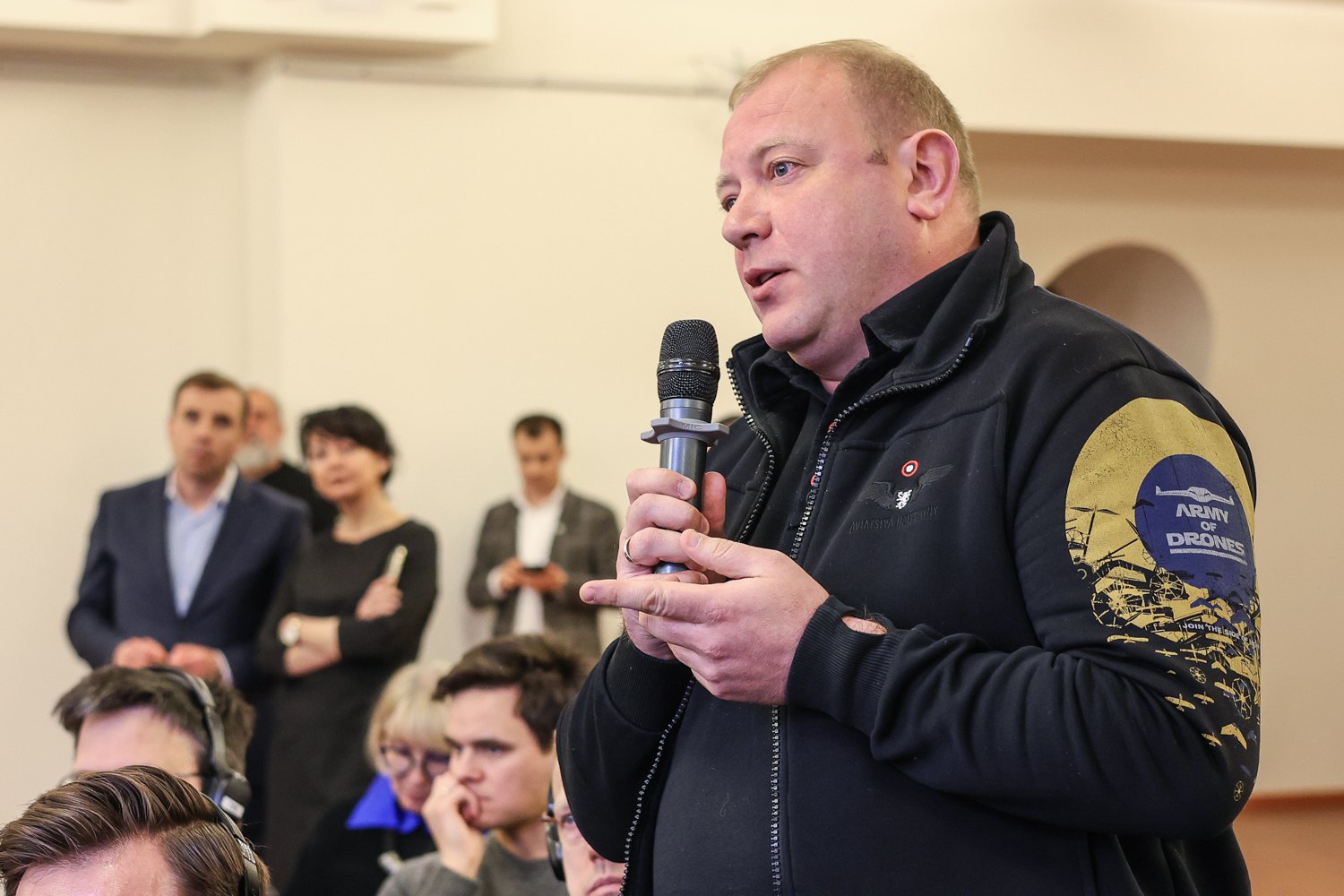
And a short question to Mr Pavlo. It's legendary that you had to explain to the Americans on your fingers why they shouldn't create inflated expectations before the truce. What can we realistically expect when we talk about a truce? We came with a proposal by sea and air. We are sceptical about a comprehensive ceasefire. What could be the conditions for the first stages of the truce?
Andriy Yermak: As I said, we will not sign anything that does not suit us. But this is a negotiation process. On the one hand, it has become more difficult because it is a more substantive document, but on the other hand, it is easier because they understand that this document will definitely be ratified by the parliament. It is not just one person's signature that is needed, it is necessary for MPs to support it. And they will need to understand what they support.
That's why our philosophy is quite simple. Let's be honest: a lot of subsoil, which according to the Constitution belongs to the people of Ukraine, has not belonged to the people of Ukraine for 30 years. And this campaign launched by President Zelenskyy to fight the oligarchs has led to the fact that most of these fields are either in the process of being transferred to the state or have already been transferred. This requires a lot of money.
Moreover, on the instructions of the President, the Ministry of Ecology has done a lot of work that I don't think anyone has done before. We assessed what we have, what we need to invest, what our potential is. We have a big problem: we don't know how to sell, we don't know how to present. Today we are working on this.
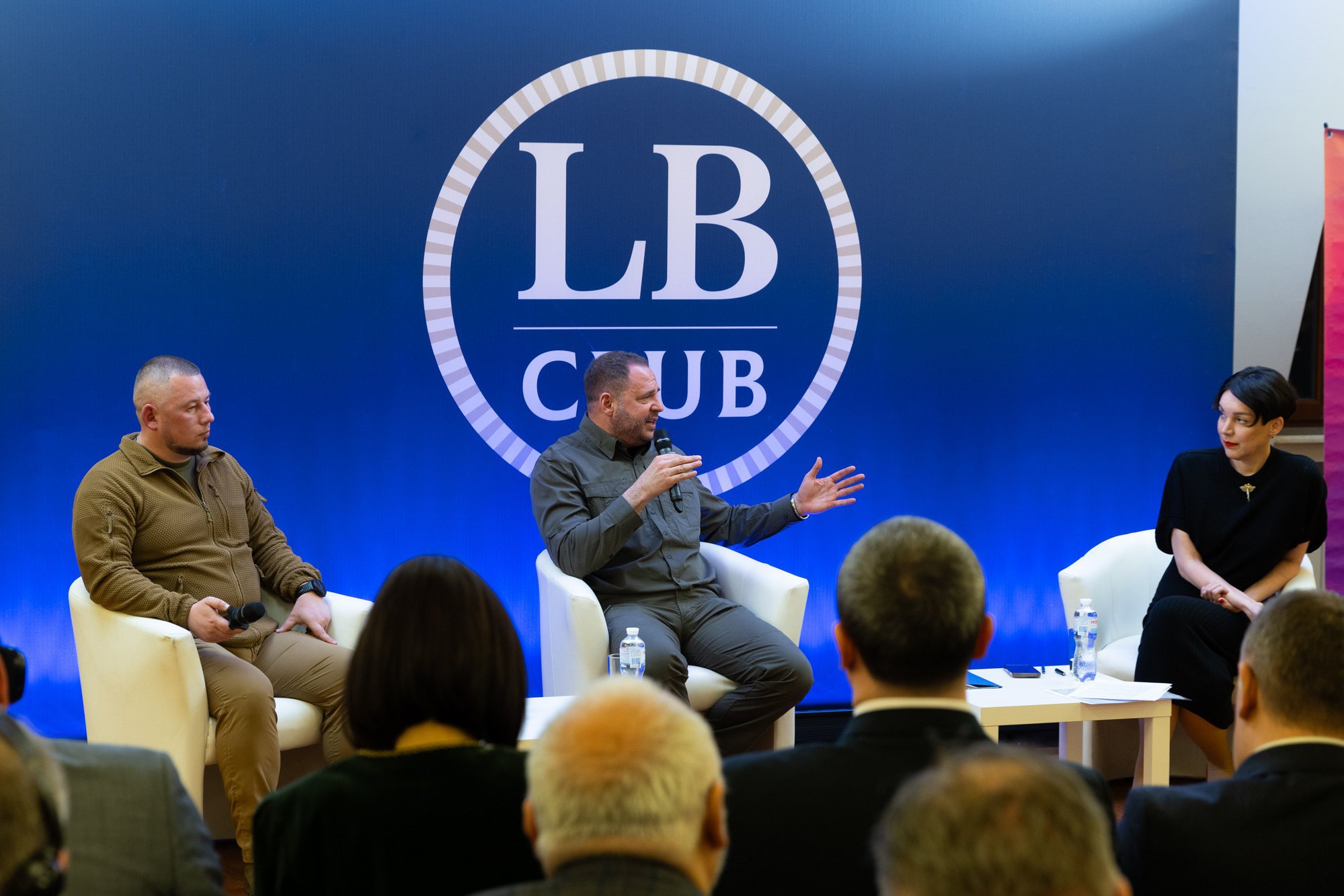
Today, our goal is for each of us, first and foremost, the government, government officials, I mean, to prove that a free, independent Ukraine within its borders is in the interests of our partners. It's not just about principles, because I'm 100% sure that our country will take off after the war is over. We also need to learn this, so that our partners understand that we have great potential, which even we did not fully understand.
Pavlo Palisa: In short, the only obstacle to the practical establishment of a truce is the desire of the Russian side. Every time we had consultations with the US side, we came with ready-made proposals, concrete ones. Even during the last consultation at the technical level, we had all the experts who proposed specific things, including technical issues, proposals for monitoring ceasefire violations.
But, obviously, the Russians are not ready to take such steps in return. Therefore, the only obstacle is the desire of the Russian side.
